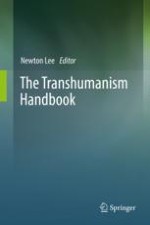2019 | OriginalPaper | Buchkapitel
27. Taking Up the Cosmic Office: Transhumanism and the Necessity of Longevity
verfasst von : Kali Carrigan
Erschienen in: The Transhumanism Handbook
Aktivieren Sie unsere intelligente Suche, um passende Fachinhalte oder Patente zu finden.
Wählen Sie Textabschnitte aus um mit Künstlicher Intelligenz passenden Patente zu finden. powered by
Markieren Sie Textabschnitte, um KI-gestützt weitere passende Inhalte zu finden. powered by
